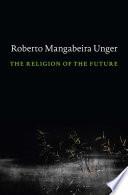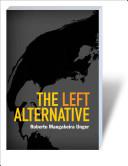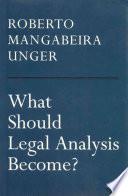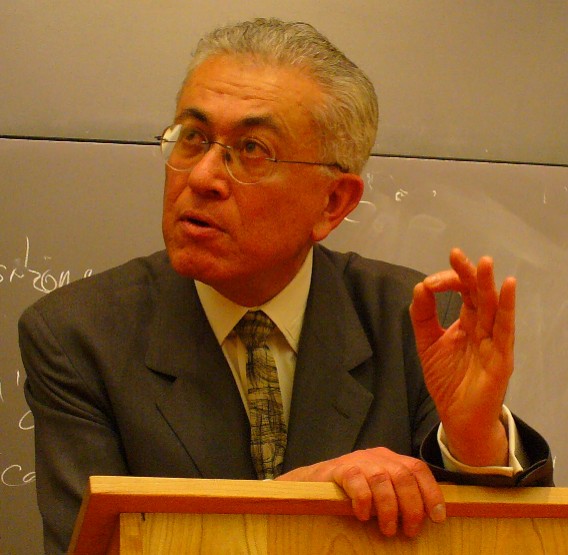Source: The Self Awakened: Pragmatism Unbound (2007), p. 41
Works
The Self Awakened: Pragmatism Unbound
Roberto Mangabeira Unger
The Religion of the Future
Roberto Mangabeira Unger
The Left Alternative
Roberto Mangabeira Unger
What Should Legal Analysis Become?
Roberto Mangabeira UngerFamous Roberto Mangabeira Unger Quotes
“In history obedience rarely pays; what pays is defiance.”
Source: The Left Alternative (2009), p. 8
Source: Social Theoryː Its Situation and Its Task (1987), p. 205
Source: False Necessityː Anti-Necessitarian Social Theory in the Service of Radical Democracy (1987), p. 26
Source: False Necessityː Anti-Necessitarian Social Theory in the Service of Radical Democracy (1987), p. 397
Source: Democracy Realizedː The Progressive Alternative (1998), p. 248
Roberto Mangabeira Unger Quotes about life
Source: Law in Modern Societyː Toward a Criticism of Social Theory (1976), p. 242
Quoted in Meena Hart Duerson, "Obama’s former Harvard professor: ‘He must be defeated’ː Roberto Unger called for Obama’s defeat in a recent YouTube video," New York Daily News, Monday, June 18, 2012
On Barack Obama
Source: Accessed at http://www.nydailynews.com/news/politics/obama-harvard-professor-defeated-article-1.1097944 on December 4, 2015
Source: The Self Awakened: Pragmatism Unbound (2007), p. 134
Source: The Religion of the Future (2014), p. 121 (explaining the religious tradition Unger calls "struggling with the world")
Source: The Self Awakened: Pragmatism Unbound (2007), p. 130
Source: The Self Awakened: Pragmatism Unbound (2007), p. 63
Roberto Mangabeira Unger Quotes about the world
Source: The Left Alternative (2009), p. 188
Source: The Self Awakened: Pragmatism Unbound (2007), p. 32
Source: The Critical Legal Studies Movementː Another Time, A Greater Task (2015), p. 105
Source: The Religion of the Future (2014), p. 356
Source: The Self Awakened: Pragmatism Unbound (2007), p. 24
Source: Plasticity Into Power: Comparative-Historical Studies on the Institutional Conditions of Economic and Military Success (1987), p. 2
Roberto Mangabeira Unger: Trending quotes
Source: Plasticity Into Power: Comparative-Historical Studies on the Institutional Conditions of Economic and Military Success (1987), p. 192
Source: The Self Awakened: Pragmatism Unbound (2007), p. 143
Source: The Self Awakened: Pragmatism Unbound (2007), p. 236-7.
Roberto Mangabeira Unger Quotes
Source: The Religion of the Future (2014), p. 295
Source: The Self Awakened: Pragmatism Unbound (2007), p. 132-3
Source: Social Theoryː Its Situation and Its Task (1987), p. 47
Source: Social Theoryː Its Situation and Its Task (1987), p. 204
Source: Plasticity Into Power: Comparative-Historical Studies on the Institutional Conditions of Economic and Military Success (1987), p. 208
Source: The Left Alternative (2009), p. 187-8
Source: The Self Awakened: Pragmatism Unbound (2007), p. 132
Source: False Necessityː Anti-Necessitarian Social Theory in the Service of Radical Democracy (1987), p. 134
Source: False Necessityː Anti-Necessitarian Social Theory in the Service of Radical Democracy (1987), p. 22
“Philosophy is a concentrated deployment of the transgressing facilities of the mind.”
Source: The Self Awakened: Pragmatism Unbound (2007), p. 30
Source: Democracy Realizedː The Progressive Alternative (1998), p. 249
Source: The Religion of the Future (2014), p. 135
Source: False Necessityː Anti-Necessitarian Social Theory in the Service of Radical Democracy (1987), p. 336
Source: The Self Awakened: Pragmatism Unbound (2007), p. 26-7
Source: Law in Modern Societyː Toward a Criticism of Social Theory (1976), p. 38
Source: Democracy Realizedː The Progressive Alternative (1998), p. 29
Source: What Should Legal Analysis Become? (1996), p. 20
Source: False Necessityː Anti-Necessitarian Social Theory in the Service of Radical Democracy (1987), pp. 563-564
Source: The Critical Legal Studies Movementː Another Time, A Greater Task (2015), p. 104-5
124
The Self Awakened: Pragmatism Unbound (2007)
Source: False Necessityː Anti-Necessitarian Social Theory in the Service of Radical Democracy (1987), p. 400
Source: False Necessityː Anti-Necessitarian Social Theory in the Service of Radical Democracy (1987), p. 97
Source: Law in Modern Societyː Toward a Criticism of Social Theory (1976), p. 260
Source: The Self Awakened: Pragmatism Unbound (2007), p. 144
Source: False Necessityː Anti-Necessitarian Social Theory in the Service of Radical Democracy (1987), p. 467
Source: The Self Awakened: Pragmatism Unbound (2007), p. 237
Quoted in David Remnick, The Bridgeː The Life and Rise of Barack Obama (2010), p. 185-6
On Barack Obama
Source: The Self Awakened: Pragmatism Unbound (2007), p. 142
Source: Democracy Realizedː The Progressive Alternative (1998), p. 15
Source: Democracy Realizedː The Progressive Alternative (1998), p. 250-1
Source: Social Theoryː Its Situation and Its Task (1987), p. 65
Source: Law in Modern Societyː Toward a Criticism of Social Theory (1976), p. 259-260
Source: The Self Awakened: Pragmatism Unbound (2007), p. 233
Source: Social Theoryː Its Situation and Its Task (1987), p. 45-46
Source: Free Trade Reimaginedː The World Division of Labor and the Method of Economics (2007), p. 210
Source: Democracy Realizedː The Progressive Alternative (1998), p. 32
Source: The Self Awakened: Pragmatism Unbound (2007), p. 18
Source: Democracy Realizedː The Progressive Alternative (1998), p. 165
Source: The Religion of the Future (2014), p. 295
Source: Plasticity Into Power: Comparative-Historical Studies on the Institutional Conditions of Economic and Military Success (1987), p. 169
Source: The Self Awakened: Pragmatism Unbound (2007), p. 69
Source: The Critical Legal Studies Movementː Another Time, A Greater Task (2015), p. 15
Quoted in David Remnick, The Bridgeː The Life and Rise of Barack Obama (2010), p. 185
On Barack Obama
Source: The Self Awakened: Pragmatism Unbound (2007), p. 80
Source: Plasticity Into Power: Comparative-Historical Studies on the Institutional Conditions of Economic and Military Success (1987), p. 12
Source: Plasticity Into Power: Comparative-Historical Studies on the Institutional Conditions of Economic and Military Success (1987), p. 160
Source: Social Theoryː Its Situation and Its Task (1987), p. 7
Source: False Necessityː Anti-Necessitarian Social Theory in the Service of Radical Democracy (1987), p. 97
Source: False Necessityː Anti-Necessitarian Social Theory in the Service of Radical Democracy (1987), p. 564
Source: The Self Awakened: Pragmatism Unbound (2007), p. 123-4
